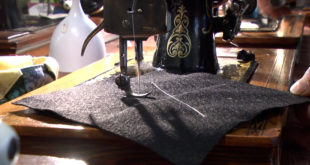 CLEVELAND — The Coast Guard is reminding mariners and outdoor enthusiasts, Monday, of the extreme dangers presented by cold water throughout the Great Lakes region.
CLEVELAND — The Coast Guard is reminding mariners and outdoor enthusiasts, Monday, of the extreme dangers presented by cold water throughout the Great Lakes region.
Freezing air and water temperatures significantly decrease survival time for persons immersed in the water or trapped on the ice.
Coast Guard Ninth District units conduct hundreds of ice rescue cases and training events each winter. In the last two years, Coast Guard crew were employed in 142 ice rescue cases and saved or assisted 121 people.
“Coast Guard boat crews in the area are now wearing dry suits whenever they go out on the water, even though they drive some of the safest, most capable boats on the Great Lakes, and we encourage you to do the same,” said Capt. Joe McGilley, chief, Ninth District incident management branch. “A life jacket can keep you afloat and dramatically increase your chances of survival if you fall in, but a life jacket is not enough in cold water.”
Before heading out onto the water, remember the following:
1. Take precautions not chances. The risk of death from accidental immersion during cold weather seasons is higher than in warm seasons. The water is colder and survival time is greatly diminished.
2. Dress for the water temperatures. Cold water lowers body heat dramatically faster than cold air. Even if you are not planning on entering the water, the possibility of that happening is very real. An unexpected fall overboard is one of the leading factors in boating deaths.
3. Every minute counts in a cold water environment and preparation may mean the difference between life and death. Never leave without a VHF-FM radio or personal locator beacon and always be sure to tell someone where you’re going, when you expect to return and advise them of any changes in the plan.
 Keweenaw Report Your Source for Local News and Sports
Keweenaw Report Your Source for Local News and Sports





